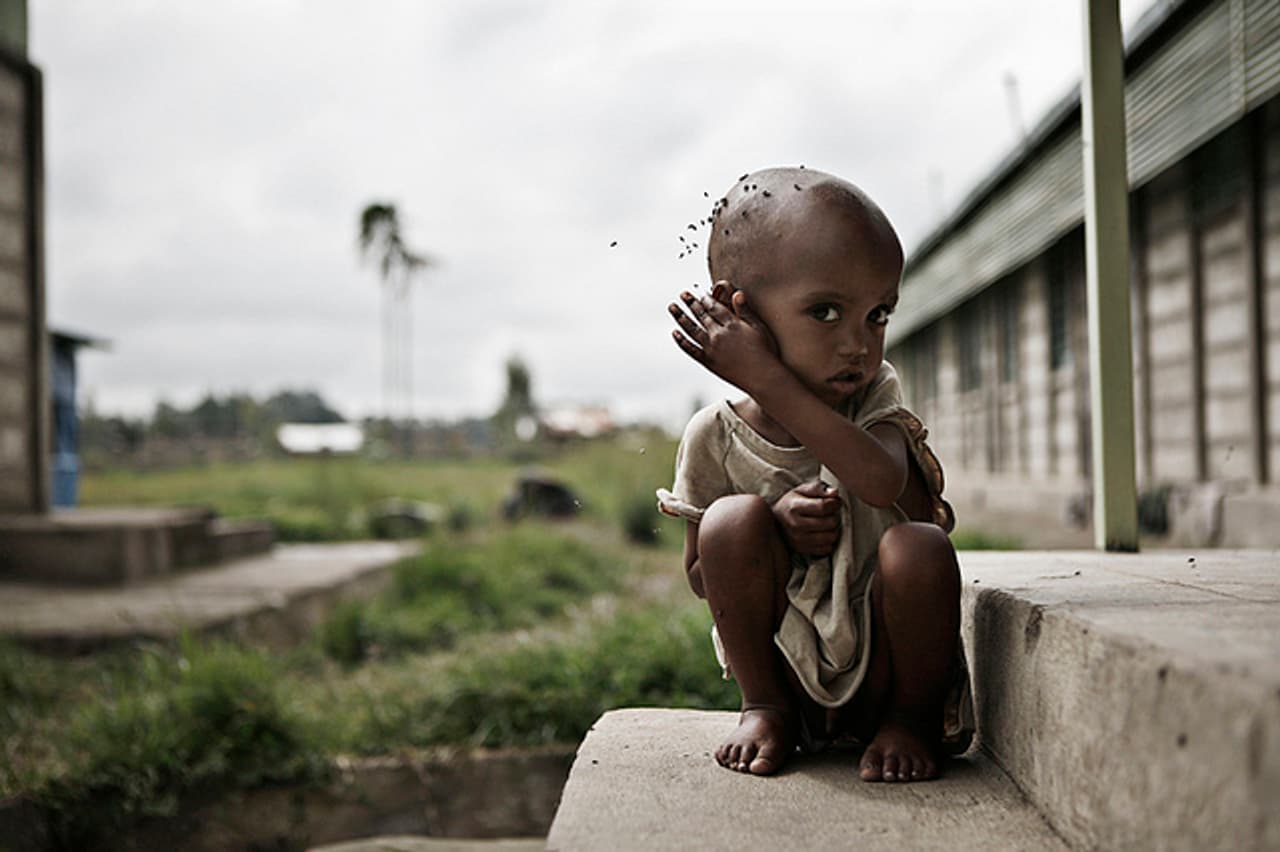
Aid as a weapon of political oppression in the Southern Regions
Perched in the arid south east of the country, the Southern Nations, Nationalities, and People’s Region (SNNPR) is an area notorious for its precarious harvest.
Green famine
Although the rains have now come, the lush green fields belie a terrible hunger. The rains came late and the crops are not yet ready to harvest.
The region is heavily dependent on foreign aid, but according to many of the people the Bureau spoke to, aid is not getting through.
In a remote village we came across a widow who has seven children ,who told us that begging is the family’s sole means of survival.
‘The situation is desperate. If the family cannot do their business [begging] we would have nothing. It all depends what the children get. Apart from the grace of god we are living. There is nothing we can do. We have been abandoned. It is a matter of chance if we live or die.’
Abandonment
Many say that the lack of assistance here is because the region backed the opposition in the 2005 election. At the time it was thought that opposition parties had made great headway in what observers considered to be genuine, open and democratic elections.
But the results were never made public.
The opposition parties in the SNNPR filed one of the highest number of complaints, and ballots were re-held across 31 constituencies. But again the results were kept from the people.
‘Fertilizers and good seeds are only given to those in good favour. The poor never get anything. We registered for aid, but they told us we were late. That is the only reason they gave.’
Village elder
And now insiders believe voters are continuing to pay the price of their ‘disloyalty’ to the ruling ENRPF, by being denied aid.
Targeted alienation
Beyene Pretros is Professor of Natural Sciences at Addis Ababa University, and Vice Chair of the opposition group the ‘ Ethiopian Forum’.
He told us that opposition supporters are being turned away when they try to register for food aid, seeds or fertilizer. Instead they are told to rely on the parties they voted for.
In the south we met a group of village elders. Scared for their lives, they met us in scrub land on the edge of the village.
‘Fertilizers and good seeds are only given to those in good favour. The poor never get anything. We registered for aid, but they told us we were late. That is the only reason they gave.’
One of the group added: ‘Due to my political views my land has been taken away. My children are dispersed. The clothes that I wear are provided by my relatives living abroad. They took away my farm land, it went to the local authority – the only judge as such. I’m only surviving by working on other people’s farms.’
A government sanctioned policy?
Both the US and the EU have produced reports criticising the elections in 2005 and 2010. Charges include harassment, intimidation, coercion and the systematic denial of food aid to opposition supporters.
US State Department report on Ethiopia in 2006 declared:
During the year there continued to be credible reports from EHRCO and opposition parties that in certain rural areas… local officials used threats of land redistribution and withholding of food aid and fertilizer to garner support for the ruling coalition.’
It is an analysis repeated by others including Amnesty International and Human Rights Watch.
Prime Minister Meles Zenawi has branded these accusation ‘outrageous and stupid’: ‘There is no such system, there will never be such a system.’
International donors
Professor Pretros told the Bureau ‘We have been trying to bring to the attention of the donors that the necessary supplies, relief food supply and safety provisions, are simply not getting to the needy. There is a great deal of political differentiation between those who support the EPRDF, and our [opposition] members’.
Despite evidence of the withholding of food aid, international aid has never been withheld from the government.
To be kept up to date on this and other stories from the Bureau, please subscribe to our newsletter by clicking here.





